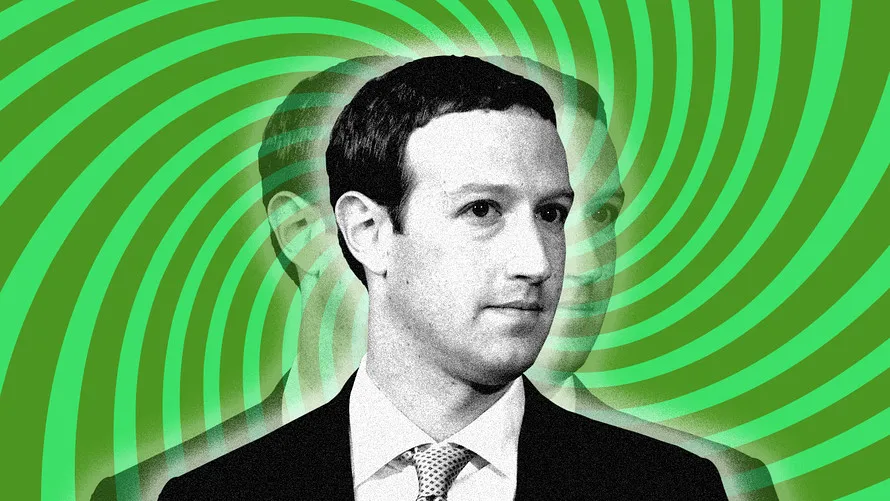There’s one big reason why consumers may want to avoid shopping with cryptocurrency

Will Facebook’s new cryptocurrency blind consumers to the amount of money they spend using it?
Facebook’s foray into cryptocurrency could mean trouble for consumers’ finances.
The social-media giant on Tuesday disclosed details of how its cryptocurrency, called Libra, will work. Libra will be a “stablecoin,” linked to the value of other currencies, unlike other cryptocurrencies like bitcoin. Consumers who use Facebook’s Messenger service, WhatsApp or a stand-alone app will be able to access Libra through a digital wallet managed by new Facebook subsidiary Calibra.
—Dan Ariely, behavioral economist
Facebook won’t run the cryptocurrency directly. Calibra will be a founding member of the nonprofit Libra Association, which will manage the coin, along with eBay EBAY, Visa,Mastercard, PayPal Holdings, Lyft, Uber UBER, and Kiva. Libra’s value will be tied to hard assets, including various currencies such as the U.S. dollar and the euro.
Starting as soon as next year, Facebook expects that consumers will be able to begin making actual purchases with Libra, although the number of purchases will be limited at first. The announcement is seen as a boon for other cryptocurrencies. Some have suggested that the price of bitcoin could quadruple in the coming months.
For consumers, Libra may less auspicious. While the cryptocurrency could provide greater access to financial services for many people across the globe, Libra could also translate into large amounts of debt if consumers aren’t careful.
Removing the pain point
Behavioral economists and psychologists have long said that credit-card usage causes people to spend more money than they would have otherwise spent with cash. Research has shown that spending cash — the literal act of handing bills and coins over to another person — triggers the same parts of the brain that process physical pain.
One 2008 study found that consumers spent more when they were given scrip, a form of a stored-value certificate, rather than cash.
Credit cards famously dull that pain, a reflection of the fact that the transaction feels less salient, said Dan Ariely, a behavioral economist at Duke University. “With the credit card, you’re not going to pay now, you’ll pay later, so it’s less salient,” Ariely said. “As saliency is higher, people feel more pain, and pay less.”
And so, credit cards can encourage overspending because they make the act of spending money less painful. The relationship between payment method and overspending isn’t unique to credit cards.
A 2008 study from New York University professor Priya Raghubir and University of Maryland, College Park professor Joydeep Srivastava tested whether people approached other forms of payment similar to how they used credit cards. Their study found that consumers spent more when they were given scrip, a form of a stored-value certificate, rather than cash.
Similarly, research has shown that consumers start spending more money when they begin using mobile wallets instead of credit cards or cash.
The ‘house money effect’ suggests that people will take more risks with money if it doesn’t feel like it’s theirs. The concept owes its name to casinos.
Cryptocurrency may be viewed by consumers as more akin to credit cards than cash, since it may not feel like “actual” money. “If people buy Facebook’s cryptocurrency, it will increase distance from the money and create less pain of payment,” Ariely said.
Ariely argued another factor called the “house money effect” could come into play. This theory suggests that people will take more risks with money if it doesn’t feel like it’s theirs — the concept owes its name to casinos and how people don’t hesitate to wager chips as they would if they were betting real cash instead.
A similar disconnect could play out with Libra, since consumers will need to purchase or exchange fiat currency for it. “In my mind, it would be ‘Facebook money,’ Ariely said. “I’ll not think of it as money that’s coming from savings.”
—Ben Smith, founder of Cove Financial Planning
Making matters worse, consumers’ fortunes with Libra will depend largely on their understanding of how it works.
“Consumers who can adequately understand and formulate the exchange rate, much like with foreign currencies, are likely to keep spending with cryptocurrency in check,” said Ben Smith, founder of Cove Financial Planning in Milwaukee, Wis.
Consumers will need to know how currency exchange works to understand that when they cash out Libra, it could be worth more or less than when they first purchased Libra, depending on how its value has fluctuated.
Keeping up with the Joneses
Consumers may face a triple-whammy thanks to Libra’s Facebook connection. Social media has been shown to promote spending thanks to peer pressure. A recent study from Charles Schwab SCHW, +0.40% found that 57% of consumers said they paid more attention to how friends spent money rather than how they saved it on social media, while 49% of millennials reported that social media influenced their choices to spend money on experiences.
“The burden to ‘keep up with the Joneses’ has been part of our culture for decades, but it appears that social media and the fear of missing out (FOMO) have increased the pressure to spend,” Terri Kallsen, executive vice president and head of Schwab Investor Services, said in the report.
One bright spot for consumers amid Facebook’s cryptocurrency push: People don’t trust the social-media giant. As a result, adoption of Libra may be limited. In a 2018 survey by personal-finance website MagnifyMoney, 91% of respondents said they wouldn’t trust Facebook to handle their payments. And as it stands, only 21% of people have reported using Messenger Payments.